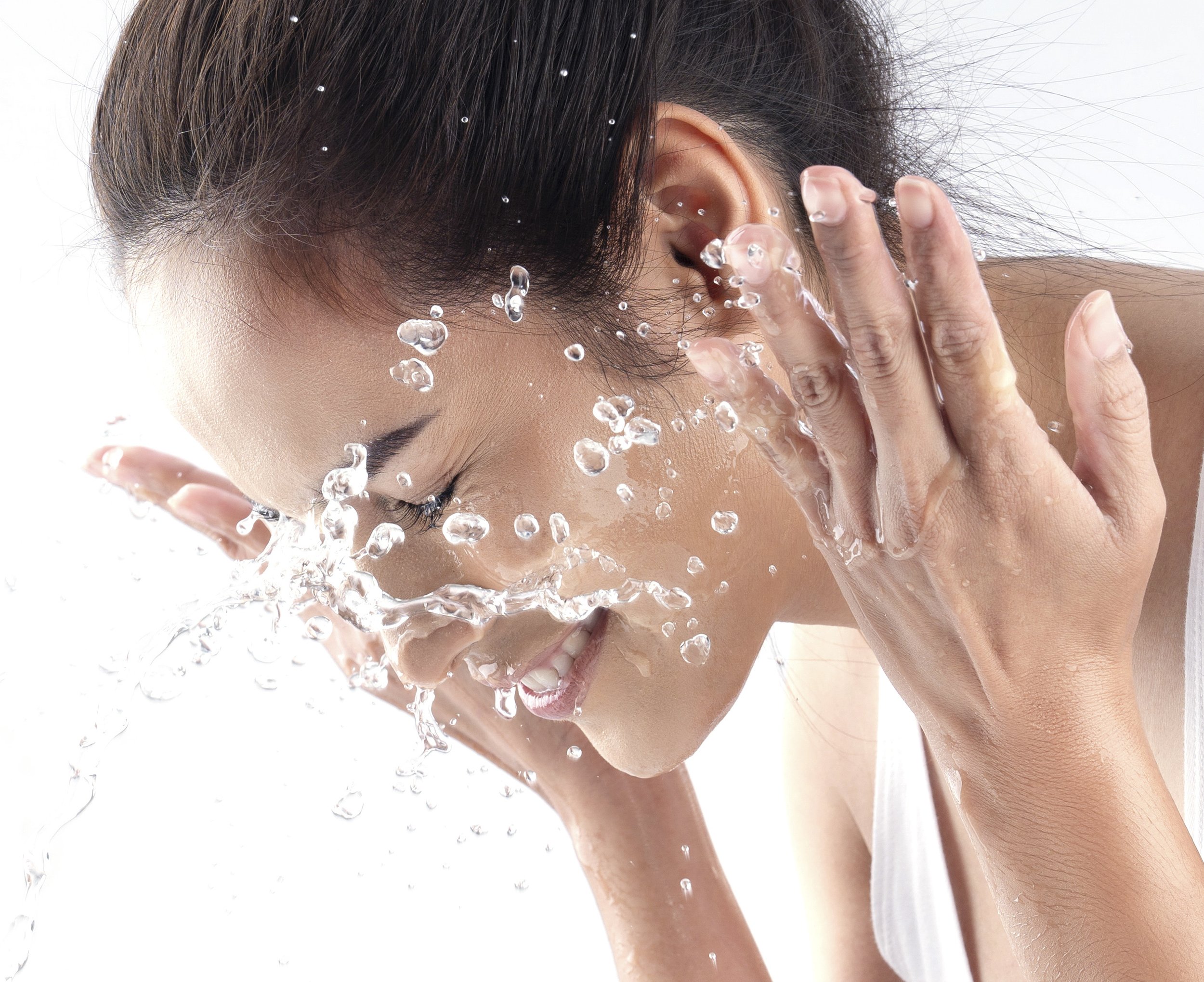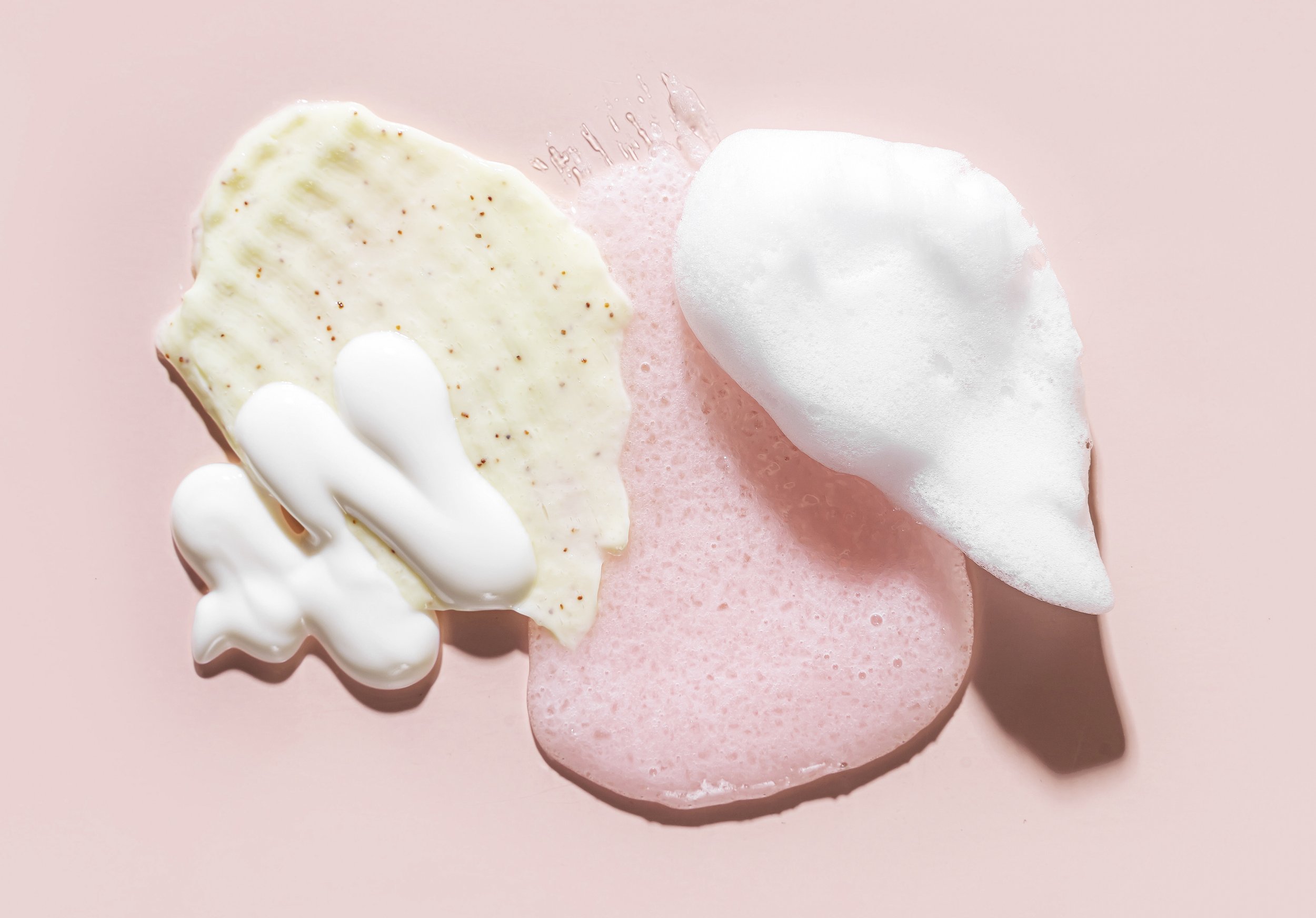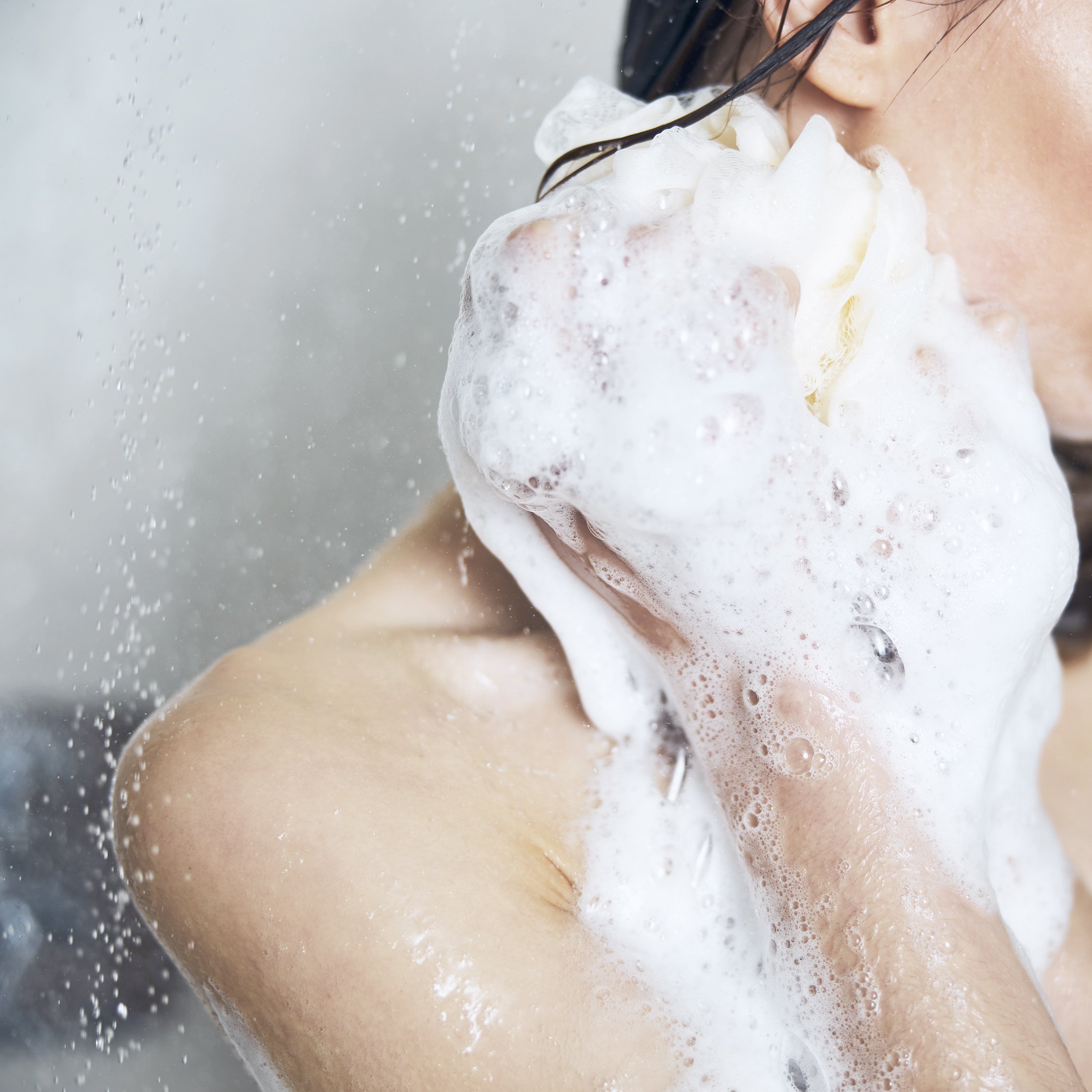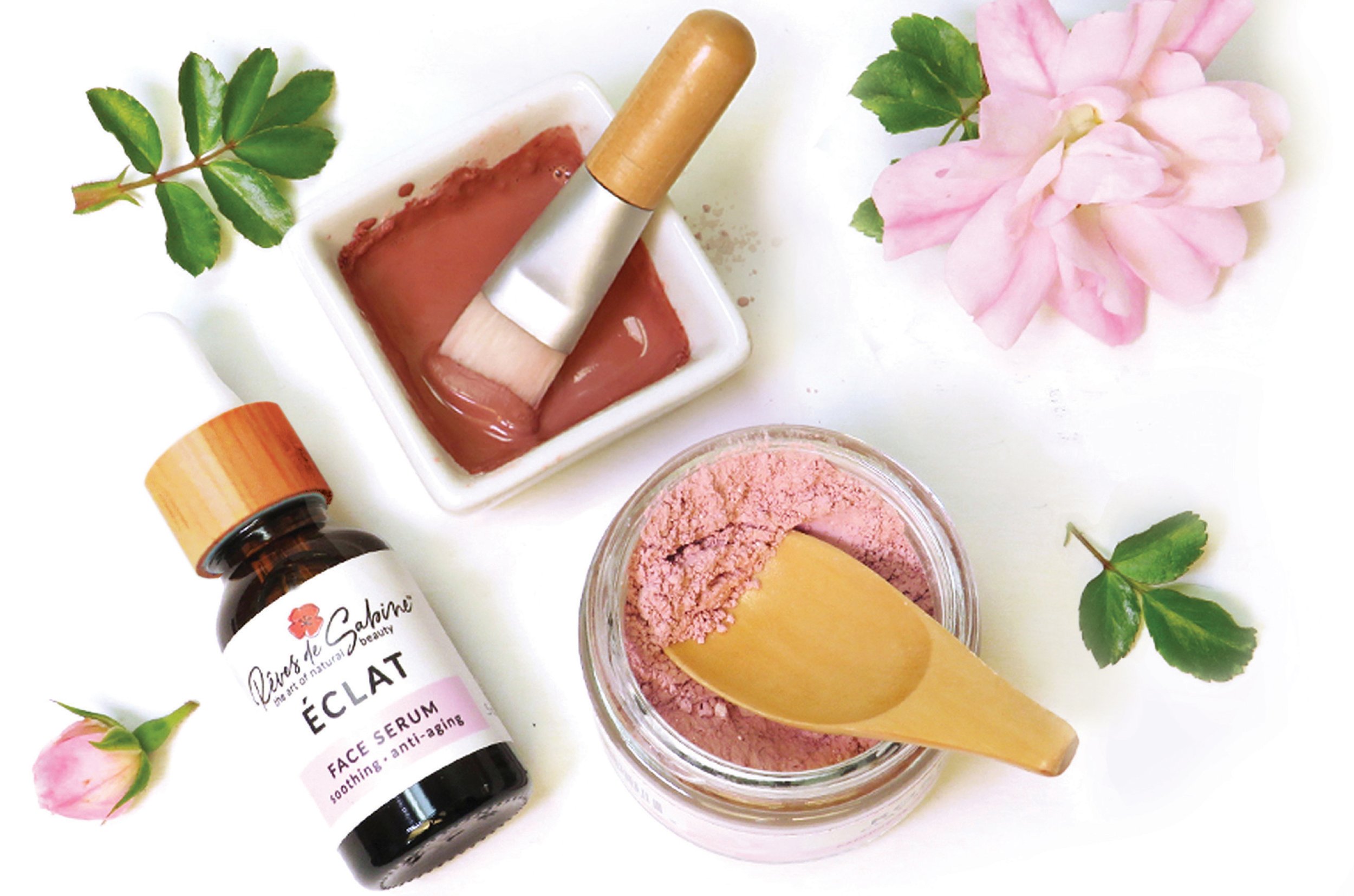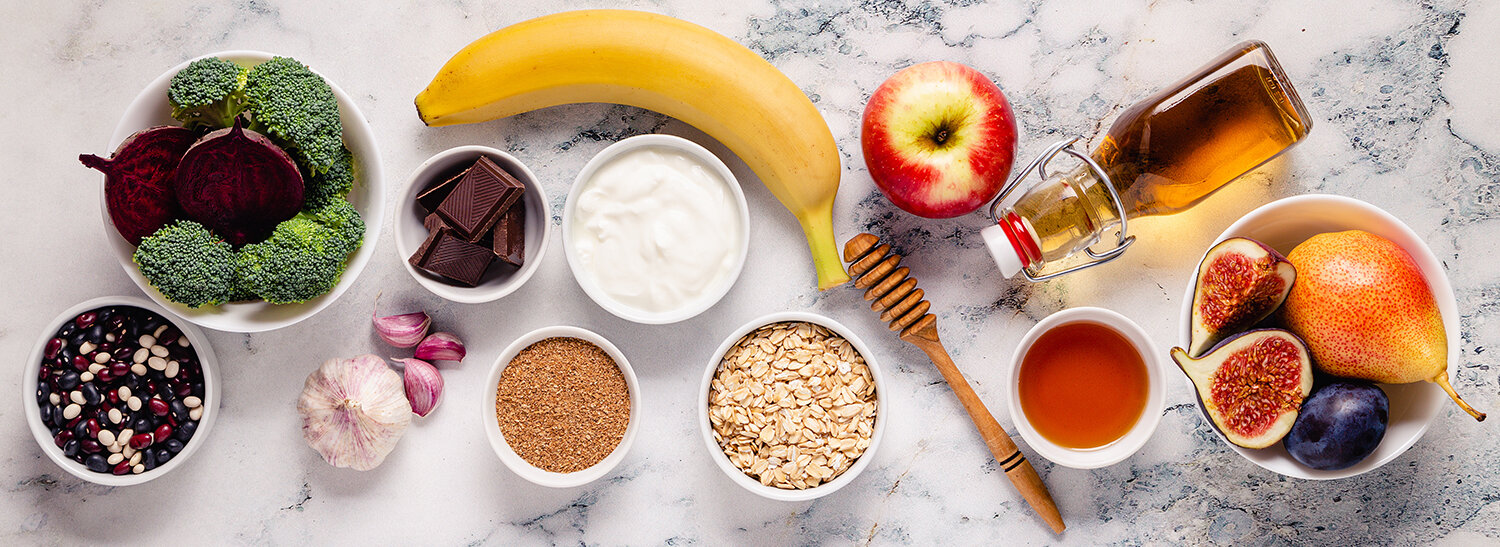Your Skin Microbiome and Your Overall Health
/What is the Skin Microbiome?
The skin microbiome is an ecosystem of microorganisms (beneficial bacteria, fungi, and viruses) that live on your skin and are essential to your immune system and your overall health. These microbes help reinforce and repair the skin barrier, which is your first defense against outside aggressions and protection from infection and inflammation. Think of it as your skin’s own flora.
Keeping a balanced skin microbiome is as important as keeping a healthy gut. Actually, rather than being completely separate entities, your skin flora and your gut flora are closely connected.
A disruption in the balance of the skin microbiome can lead to conditions like psoriasis, allergies, eczema, acne, rosacea, premature skin aging, and poor wound healing.
How do you protect your skin microbiome?
ON THE OUTSIDE:
1/ By being kind to your skin and avoiding harsh chemicals as much as possible. Some soaps, shampoos, laundry detergents, hand sanitizers, and other cleaning products can be particularly hard on your skin. True soaps, for example, are alkaline. When mixed with water, they have a pH of about 10, while your skin has a pH of about 5. Avoid bacterial soaps at all costs! Not only are they no more effective than regular soap, but they also contain toxic chemicals (like Triclosan), and they have the potential to create antibiotic-resistant bacteria.
That does not mean not using soap at all. Your skin rebalances itself fairly rapidly (within about 20 minutes after you shower), but over time soaps can dry your skin, making it vulnerable, and even encouraging it to overcompensate by manufacturing too much oil. If you have sensitive skin, you may want to opt for a soap-free body wash, or a cleanser with a more acidic to neutral pH of 5-7 (to minimize barrier damage). As for the face, use a cleansing oil instead of soap (or even wipes) to remove dirt and makeup, and to protect your skin’s natural oils and microbiome balance.
2/ By avoiding products containing preservatives. Skincare products like creams, lotions, cleansing gels, etc… contain water, which inevitably encourages the growth of bacteria. They require a variety of preservatives to kill microbes, prevent contamination, and extend their shelf life. But these preservatives also impact the skin microbiome. They inhibit the survival of a variety of beneficial bacteria. And healthy skin needs microbial diversity to perform its role properly.
3/ By avoiding washing too frequently. Yes! That’s right. Your daily vigorous head-to-toe scrubbing in the shower may be counterproductive. Washing too frequently can destroy useful bacteria, and strip off the oils that naturally keep your skin microbiome balanced, allowing harmful bacteria or fungi to grow out of control. If you need a daily shower, use soap only where it is needed, and just rinse off the rest of your body.
4/ By washing regularly. The health of your skin microbiome will also be impaired if you wash or shower too little, if germs don’t get washed off before they damage your skin or before they enter your body. Accumulated dirt and dead skin cells can form a sort of “film” over your skin that also hinders its proper function.
5/ By practicing gentle exfoliation. If you want to exfoliate your body, dry brush before you shower (but not every day). Dry brushing stimulates the lymphatic system, increases blood flow to the skin, and encourages the elimination of toxins and cellulite. For the face, a natural clay mask is a great way to pull out toxins and everything that is clogging up your skin, without scrubbing (no more than once a week). Our Rose Clay Mask, for example, is very gentle. Just make sure to apply a moisturizer after rinsing it off and while your skin is still damp to lock in moisture. You can also try our all-inclusive Flawless Complexion Kit (which provides both clay mask and face oil).
6/ By protecting and nourishing your skin, so it can withstand regular washing. ALWAYS moisturize your face and body after washing. Your hands and feet are especially vulnerable to environmental aggressions and harsh treatment. For them, healing balms like our Dream Body Balm, Gardener’s Balm, or Foot Balm not only moisturize and soften your skin but also leave a protective film that prevents your skin from cracking or drying.
ON THE INSIDE:
By promoting a healthy gut. Eat a balanced diet rich in prebiotics (like oats, onions, garlic, leaks, asparagus, apples, bananas, dandelion greens, legumes) and probiotics (like sauerkraut, kimchi, kombucha, kvass, miso, natto, tempeh, salt-and-water-fermented pickles, olives, dark chocolate, yogurt, kefir, raw cheese).
ON THE INSIDE + OUTSIDE:
By working up a sweat! When you have a balanced diet, your sweat produces healthy prebiotics that are beneficial to your skin microbiome.
REMEMBER: SKINCARE IS HEALTHCARE!
Footnotes:
If you are interested, here are a few links that dig a little deeper into the subject.
About the skin microbiome:
https://www.ncbi.nlm.nih.gov/pmc/articles/PMC3535073/
https://www.ncbi.nlm.nih.gov/pmc/articles/PMC7155096/
About soap and antibacterial soap:
https://ethique.com/blogs/behind-the-scenes/what-is-soap
About best washing practices:
https://www.amymyersmd.com/article/skin-microbiome-washing/
About prebiotic foods:
About probiotic foods:
https://facty.com/food/nutrition/13-probiotic-foods-to-add-to-your-diet/13/




